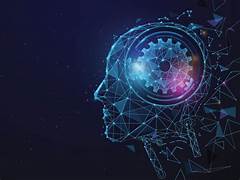The Use of AI in Improving Mental Health Diagnosis and Treatment
Mental health disorders are a pervasive challenge, affecting millions globally. From depression and anxiety to more severe conditions like bipolar disorder and schizophrenia, the demand for accurate diagnosis and effective treatment has never been greater. Traditional methods, while valuable, often struggle with limitations such as subjective bias, time constraints, and access barriers. Artificial Intelligence (AI) is emerging as a transformative tool in this field, promising to revolutionize how mental health is diagnosed and treated.
The Role of AI in Mental Health Diagnosis
1. Early Detection Through Predictive Analytics
AI algorithms analyze large datasets, including electronic health records (EHRs), patient questionnaires, and even social media activity, to identify early signs of mental health issues. By recognizing patterns and correlations that may escape human observation, AI enables:
- Early Diagnosis: Tools like machine learning models can flag potential symptoms of depression or anxiety long before they manifest into severe conditions. For instance, subtle changes in speech patterns or social interactions can be indicators of underlying issues.
- Personalized Risk Assessments: AI can predict an individual’s risk of developing specific mental health disorders based on genetic, environmental, and behavioral factors.
2. Objective Analysis
Traditional mental health diagnoses often rely on subjective assessments by clinicians. AI brings objectivity by analyzing:
- Facial Expressions: AI-powered facial recognition tools can detect micro-expressions linked to emotional distress.
- Voice and Speech Patterns: Natural Language Processing (NLP) algorithms assess tone, speed, and word choice to identify symptoms of disorders like depression or PTSD.
- Biometric Data: Wearable devices collect physiological data (e.g., heart rate, sleep patterns) that AI analyzes to identify stress or mood changes.
AI in Treatment Personalization
1. Tailored Therapeutic Interventions
AI excels in creating personalized treatment plans by analyzing an individual’s unique needs and responses to interventions. For example:
- Therapy Matching: AI can recommend specific therapy types (e.g., cognitive behavioral therapy or dialectical behavior therapy) based on a patient’s condition and personality.
- Medication Optimization: By analyzing genetic information and past treatment responses, AI helps clinicians prescribe medications with fewer side effects and higher efficacy.
2. Real-Time Monitoring and Feedback
AI-powered apps and devices provide continuous monitoring and support for mental health patients, offering:
- Mood Tracking: Applications like Woebot or Moodpath use AI to track emotional states and provide actionable insights.
- Crisis Intervention: Chatbots and virtual assistants can detect signs of crisis and provide immediate support or escalate to human intervention.
- Behavioral Nudges: AI systems remind patients to take medications, practice mindfulness, or attend therapy sessions, enhancing adherence to treatment plans.
Virtual Mental Health Assistants
1. AI Chatbots for Therapy
AI chatbots, such as Wysa and Replika, provide conversational therapy, offering a non-judgmental space for users to discuss their feelings. These tools:
- Use NLP to understand and respond empathetically to user inputs.
- Provide evidence-based coping strategies and exercises.
- Offer 24/7 accessibility, bridging gaps in traditional therapy services.
2. Support for Clinicians
AI doesn’t replace therapists but enhances their capabilities by:
- Analyzing Session Data: AI reviews therapy sessions to identify trends or missed cues.
- Generating Insights: Tools provide clinicians with recommendations for treatment adjustments.
- Reducing Administrative Burdens: Automated systems handle scheduling, note-taking, and follow-ups, allowing clinicians to focus more on patient care.
Advancing Mental Health Research
1. Data-Driven Insights
AI’s ability to process vast amounts of data accelerates mental health research by:
- Identifying previously unrecognized patterns in mental health conditions.
- Testing hypotheses on large datasets, leading to more robust findings.
- Accelerating the discovery of biomarkers linked to mental illnesses.
2. Improving Clinical Trials
AI optimizes clinical trials by:
- Selecting suitable participants based on complex inclusion criteria.
- Monitoring trial progress in real-time.
- Analyzing outcomes more efficiently, speeding up the development of new treatments.
Overcoming Barriers in Mental Health Care with AI
1. Addressing Accessibility Issues
AI bridges the gap for underserved populations by:
- Providing remote therapy options for those in rural or resource-limited areas.
- Offering affordable alternatives to traditional therapy.
- Reducing wait times through scalable solutions like AI chatbots.
2. Combating Stigma
The anonymity of AI-driven tools encourages individuals who might avoid traditional mental health services due to stigma to seek help in a judgment-free environment.
Challenges and Ethical Considerations
Despite its potential, the use of AI in mental health raises several challenges:
1. Data Privacy and Security
- Ensuring sensitive mental health data is securely stored and shared is paramount.
- Transparent policies are needed to address concerns about data misuse.
2. Bias in AI Models
- AI systems can perpetuate existing biases in mental health care if trained on unrepresentative datasets.
- Efforts must be made to ensure diverse and inclusive data collection.
3. Over-Reliance on Technology
- While AI is a valuable tool, it cannot replace the empathy and nuanced understanding provided by human therapists.
- Patients may struggle to build trust in AI systems.
4. Regulatory Challenges
- Governments and healthcare organizations need to establish clear guidelines for the ethical use of AI in mental health.
The Future of AI in Mental Health
The integration of AI into mental health care is still in its infancy but holds immense promise. Future advancements may include:
1. Improved Diagnostic Tools
- AI systems capable of diagnosing complex, co-occurring mental health disorders with greater accuracy.
2. Enhanced Virtual Reality Therapy
- Combining AI with VR to create immersive therapeutic experiences for conditions like PTSD or phobias.
3. Global Mental Health Networks
- AI platforms connecting clinicians, researchers, and patients worldwide to share knowledge and resources.
4. Personalized Mental Health Ecosystems
- Integrated systems that combine wearable devices, AI chatbots, and clinician input for holistic care.
Conclusion
AI is redefining the landscape of mental health care, offering innovative solutions for diagnosis, treatment, and research. While challenges remain, the benefits—from early detection to personalized treatment and improved accessibility—are profound. By addressing ethical and practical concerns, AI has the potential to transform mental health care, making it more effective, equitable, and accessible for all.


